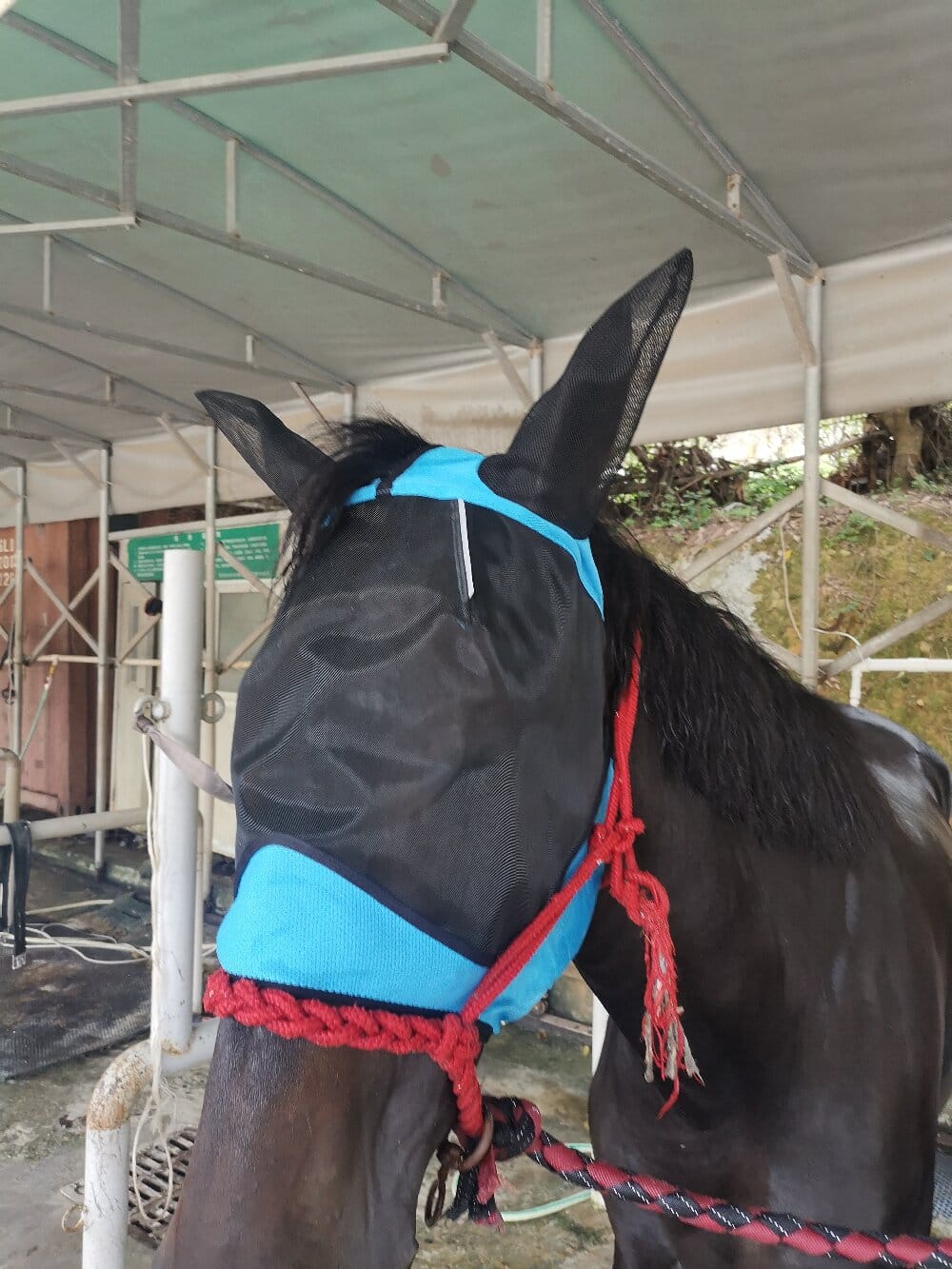A horse fly mask is an essential piece of equine gear designed to protect horses from irritating and potentially harmful insects. These masks shield the eyes, ears, and face from flies, mosquitoes, and other pests, ensuring the animal’s comfort and health. Whether used for pasture turnout, training, or competition, a well-fitted fly mask can significantly improve a horse’s quality of life. This article explores the benefits, types, and real-world applications of fly masks through a case study approach, offering insights from multiple perspectives.
Case Study: How a Fly Mask Transformed a Horse’s Summer
Meet Bella, a 12-year-old Thoroughbred mare who struggled with constant fly irritation during the summer months. Her owner, Sarah, noticed frequent head-shaking, eye discharge, and restlessness—clear signs of discomfort. After consulting a veterinarian, Sarah invested in a high-quality horse fly mask with UV protection. Within days, Bella’s behavior improved dramatically. The mask not only reduced fly bites but also prevented sunburn on her sensitive facial skin. This case highlights how a simple accessory can make a profound difference in equine well-being.
Types of Horse Fly Masks: Which One Is Right for Your Equine?
Fly masks come in various designs, each catering to specific needs. Here are the most common types:
- Standard Fly Masks: Cover the eyes and ears, offering basic protection against flies.
- UV-Protective Masks: Shield horses from harmful sun rays while repelling insects.
- Full-Face Masks: Extend coverage to the muzzle, ideal for horses with sensitive skin.
- Earless Masks: Designed for horses that dislike ear coverage but still need eye protection.
Choosing the right type depends on your horse’s environment, sensitivity, and activity level.
Veterinary Perspective: Health Benefits of Using a Fly Mask
Dr. Emily Carter, an equine veterinarian, emphasizes the health advantages of horse fly masks. “Flies are more than just a nuisance—they can transmit diseases like conjunctivitis and summer sores,” she explains. “A fly mask acts as a barrier, reducing the risk of infections and allergic reactions.” Additionally, masks with UV protection help prevent squamous cell carcinoma, a common skin cancer in horses. Regular use of a fly mask, especially in sunny or insect-heavy regions, is a proactive measure for long-term health.
Owner’s Perspective: Practical Tips for Choosing and Maintaining Fly Masks
Horse owners play a crucial role in ensuring the effectiveness of fly masks. Here are some practical tips:
- Fit Matters: A mask should be snug but not tight, allowing free movement without rubbing.
- Material: Opt for breathable, durable fabrics like mesh to prevent overheating.
- Cleaning: Wash the mask regularly to remove dirt and sweat, which can attract more flies.
- Inspection: Check for wear and tear, as damaged masks can cause irritation or fail to protect.
Investing in a high-quality mask and maintaining it properly ensures long-lasting benefits.
Conclusion: A Small Investment for Big Returns
A horse fly mask is more than just a seasonal accessory—it’s a vital tool for safeguarding your horse’s health and comfort. From preventing painful bites to reducing disease risks, the benefits are undeniable. By understanding the different types, consulting veterinary advice, and following practical care tips, owners can make informed decisions that enhance their horse’s quality of life. Whether you own a competition horse or a pasture pet, a fly mask is a small investment with big returns.

